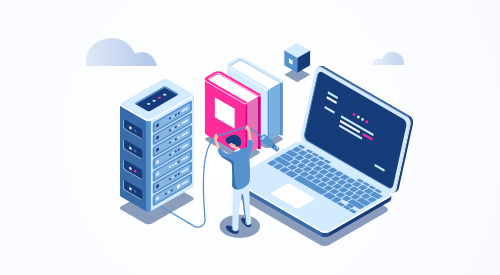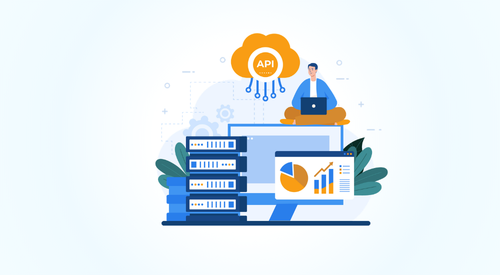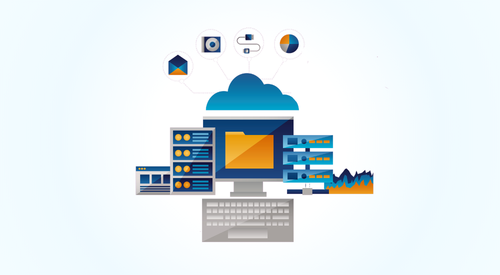

Data is the center of any industry. It is for this reason that businesses are rapidly embracing Technology. As more data needs to be captured, processed, stored and analyzed, businesses are increasingly opting for cloud-based solutions that make it easier to get data processed in a jiffy. Cloud-based solutions are also capable of handling the scalability issues related to data. Businesses use cloud-based applications to power their organizations. The cloud is a huge resource of information which can be accessed anytime, by anyone. There are several cloud-based applications that have become a part of the data pipeline. Google Cloud Dataflow is one of the top tools available for leveraging big data. Here, we will look at what Google Cloud Dataflow- benefits, use cases and more,.
Large Windows For Processing data | Access to GCP services | Affordable Costs | Security
Google Cloud Dataflow – Data Pipelines Automation
Dataflow is a fully managed service, designed to make it easy to reliably and repeatedly process large amounts of data. It lets you focus on your applications instead of the infrastructure, while delivering a highly reliable, high-velocity data processing engine.
Google Cloud Dataflow allows software developers to focus on the core logic of their data processing applications, instead of managing on-demand resources such as clusters and data movement. You write data processing applications using client libraries such as Java, Go, Python, and Node.js, and the platform handles the details of provisioning resources (such as Google Compute Engine instances, BigQuery datasets, and Cloud Storage buckets), executing your program, and making the results available for further analysis.
Automated provisioning and management of processing resources –
The Google Cloud Dataflow service enables you to process and transform your data both at rest in Cloud Storage and in motion with Cloud Pub/Sub. It provides a managed environment where you can focus on your domain and business logic, instead of managing and scaling your infrastructure. With Dataflow, you can automatically provision the cloud resources they need for their data processing jobs, and manage that usage on an ongoing basis through a simple, unified interface.
Horizontal autoscaling of worker resources to maximize resource utilization –
Google Cloud Dataflow is a unified programming model for batch and streaming analytics on static data assets or dynamic data generated by user actions. It simplifies the development of complex data processing pipelines required to manage big data. Dataflow pipelines are created using a domain-specific language that enables developers to focus on the business logic of a data processing job, rather than the infrastructure. Once you have created a dataflow pipeline, you can run it continuously on an as-needed basis. You can easily increase the resources available to your dataflow job by using the horizontal auto scaling capabilities of the underlying cloud infrastructure. This allows you to minimize your costs while maximizing the throughput of your data processing pipeline.
OSS community-driven innovation with Apache Beam SDK –
GCP Dataflow is a managed service for Apache Beam that makes it easy for developers to build and run Beam pipelines. It provides a unified programming model and offers rich support for batch and streaming data processing.
Reliable and consistent exactly-once processing –
With GCP Dataflow, you can build reliable and consistent pipelines that work when your data processing code fails, without any code changes or system administration. You can also easily move pipelines between multiple environments for testing and deployment. Dataflow pipelines can achieve state-full processing with exactly-once semantics. You can program Dataflow in Java or Node programming languages or you can use the Dataflow SDK for Python. Pipeline state is automatically maintained at all stages of your pipeline.
Different ways to use Dataflow and its benefits –
The service is capable of pulling data from Google Cloud Storage and Google Cloud BigTable, as well as other sources. It can then process that data through a wide variety of steps – including filtering, aggregating, and enriching it – and then output it to Google Cloud Storage. Dataflow can be used to build and run distributed data processing applications in Google Cloud Platform. It provides simple primitives that are useful for many of today’s “Big Data” processing patterns, including ETL (Extract, Transform, and Load), stream processing, and batch processing. Cloud Dataflow offers a number of advantages that are useful to all kinds of businesses and organizations –
- As Dataflow is a managed service, users don’t need to worry about scaling, security, monitoring or administration, making it easy to build, deploy and operate applications.
- Dataflow is managed by Google, which means that it can access the enormous amount of processing power the company has available on its data centers.
- Dataflow can handle everything from batch to real-time data processing and eliminates the need to manage clusters and servers.
- Dataflow offers built-in support for Apache Beam, Google’s open-source data processing framework, which makes it easy to develop large-scale, highly efficient pipelines quickly.
Google Cloud Dataflow Use cases
Here are some of our clients who are leveraging Dataflow –
- A multi-billion dollar conglomerate implemented real-time data ingestion with Dataflow from different sources, bringing down the cost to 90% of the original infrastructure costs
- India’s oldest music label now analyzes data from multiple data sources with Dataflow, for generating insightful reports
- A home solutions firm implemented a centralized data warehouse equipped with machine learning capabilities, and improved the data analysis considerably
- A multinational automotive manufacturing corporation that specializes in tractor manufacturing, improved their data pipeline for their application that showcases the summarized data that are gathered from tractors for farm operators.
- A beverage manufacturer that has a range of products, implemented FMCG analytics & reporting system with a secondary sales dashboard by leveraging Dataflow for an automated data pipeline
With the wide array of Dataflow features, we hope you can find a way to utilize it in your business to truly provide an advantage.











